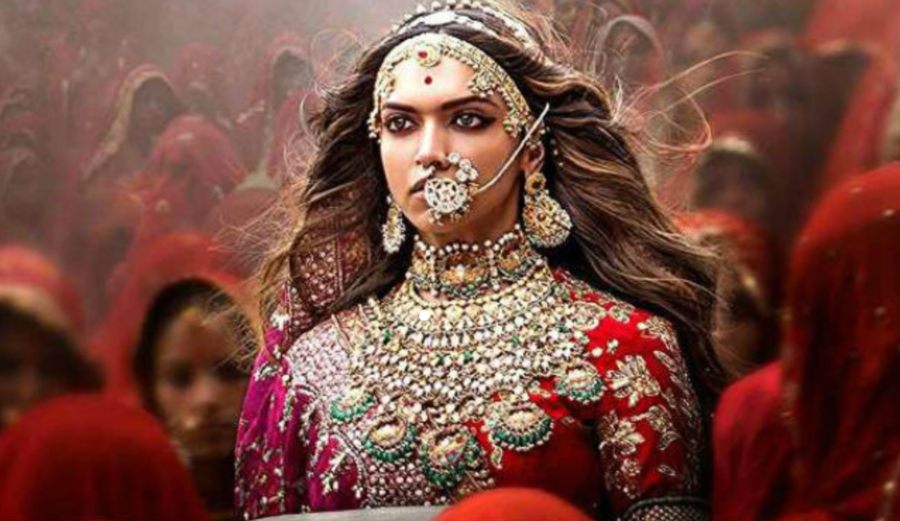Bollywood Movie, Padmaavat, Review
March 1, 2018
Currently standing as the 6th highest grossing Bollywood movie, Padmavaat, hit theaters world-wide on January 25th 2018. The sweetheart of Indian cinema, Deepika Padukone, starred as the female lead, establishing Padmaavat as the highest grossing, female-centered, Bollywood movie. Established Indian stars Shahid Kapoor and Ranveer Singh star as the male leads. Additionally, Padmaavat was directed and produced by Bollywood movie mogul, Shanjay Leela Bhansali.
Padmaavat follows the story of a queen, Maharani Padmavati (Deepika Padukone), who is said to be the most beautiful woman in 1303 AD medieval India. Maharani Padmavati is known for her exceptional beauty, along with her strong sense of righteousness. Padmavati is married to Maharawal Ratan Singh (Shahid Kapoor), who is the King, Maharaj, of the Kingdom of Chittor, a prosperous kingdom in Northwest India. The legend of Maharani Padmavati’s beauty reaches the reigning Sultan of India at the time, Allaudin Khiliji (Ranveer Singh), who is infested with the obsession of having all things exceptionally beautiful and precious for himself. Allaudin Khiliji embarks on a six-month siege to tear down the fortress of Chittorgarh and obtain Maharani Padmavati. However, he is unsuccessful and returns empty handed. Humiliated by his defeat, Allaudin Khiliji only becomes more obsessed with the Maharani and reattacks Chittor with a bigger force and raging fury. Maharawal Ratan Singh fights Allaudin Khiliji bravely, defending the people of his kingdom, and the honor of his wife. However, Ratan Singh is eventually defeated in the battle ground, leaving Allaudin Khiliji with the access to finally enter the Kingdom of Chittor. Despite his victory in the battle field, Padmavati and the other woman of the Chittor Kingdom also fight to protect their honor inside of the palace. Before Allaudin Khiliji and the other soldiers of the Delhi Sultanate could lay their eyes on them, Maharani Padmavati and tens of other women commit jauhar to protect their dignity.
Jauhar is the Hindu custom of mass self-immolation by women to avoid enslavement, capture, and rape, when their kingdom faces certain defeat in the hands of invaders. Due to Maharani Padmavati committing Jauhar, there was much controversy surrounding the film with some claiming it was demeaning to Hindu culture and the Rajput Kingdom (the Kingdom of Chittor is part of the larger Rajput empire). These Hindu and Rajput extremists even attempted to burn down the sets of Padmaavat.
Another controversial aspect of the film was in the portrayal of Allaudin Khiliji as a complete maniac with zero morals and emotion, which some claimed perpetuates Islamic phobia, currently relevant in Bollywood movies. From murdering people within his own family to being portrayed as an essential animal, there is credit to this controversy. Although there were accounts to suggest that Allaudin Khiliji was cruel and ballistic, there was no historical evidence that he was a maniac and obsessed with everything he deemed pure and beautiful, as shown in the movie. While the Muslim Sultanate, Allaudin Khiliji, was portrayed as a vicious and vile human being, the Hindu Maharaj, Ratan Singh was portrayed to be ever so righteousness and a lover of justice. For this reason, I wish Bhansali had been more sensitive with the Hindu-Muslim relations he chose to illustrate.
Taken overall, Padmaavat is an excellently shot film, with brilliant and lively actors, and wonderful songs, as well as settings. I would greatly recommend the film, which is currently playing at the AMC palisades.



